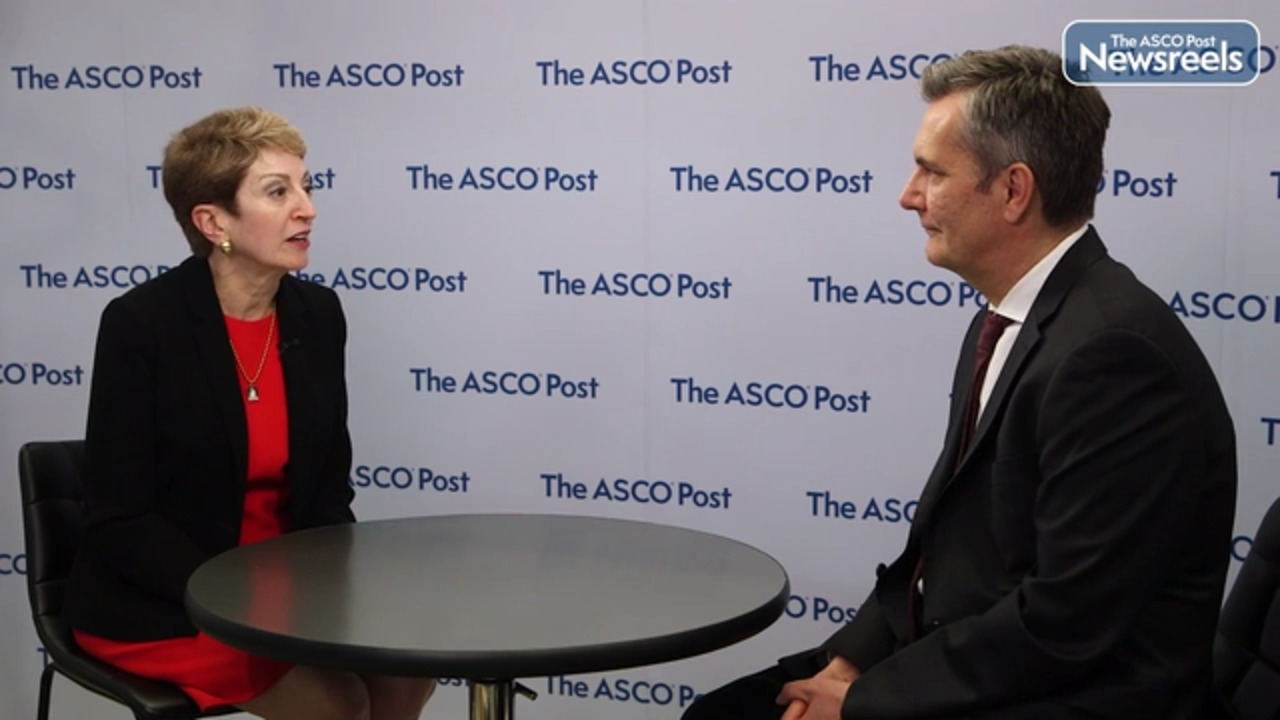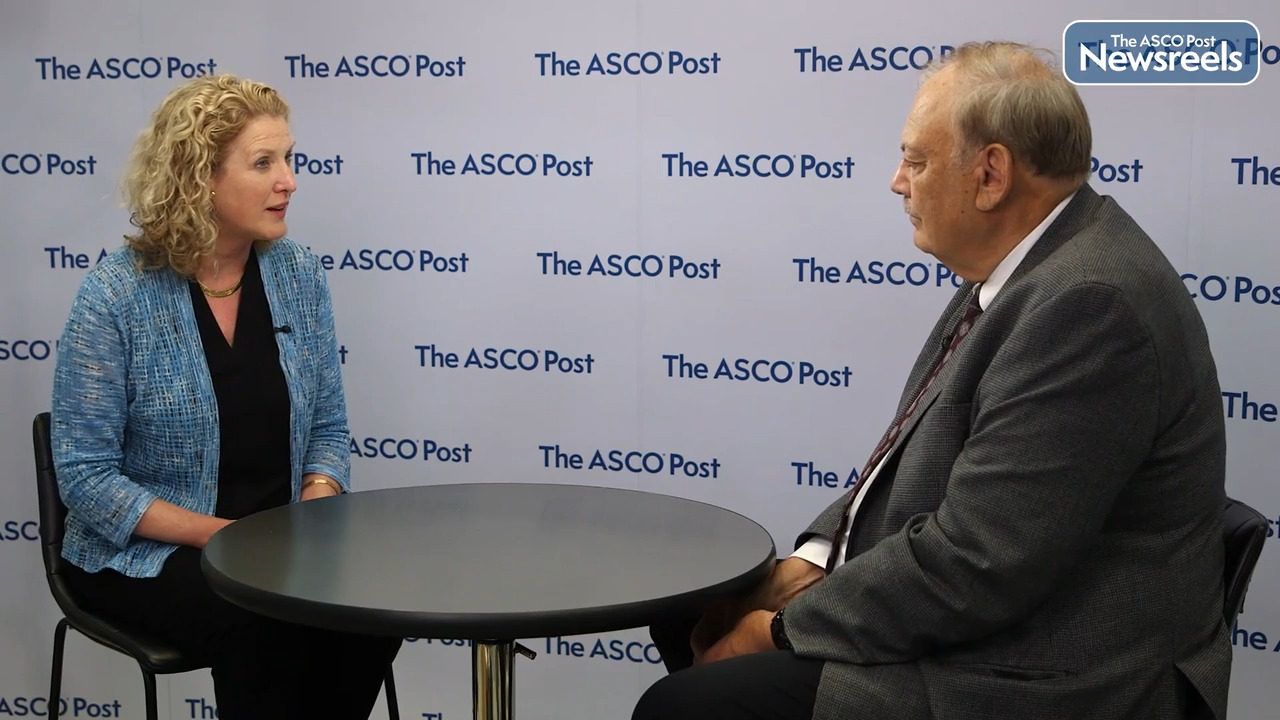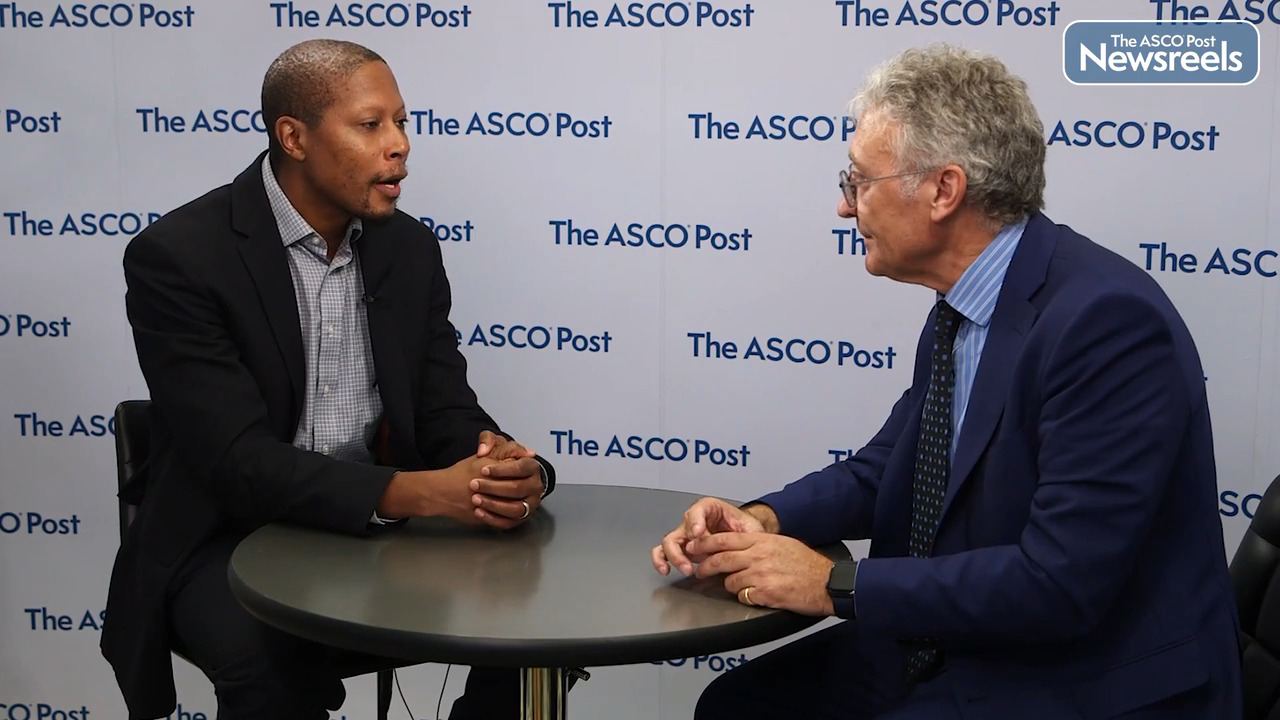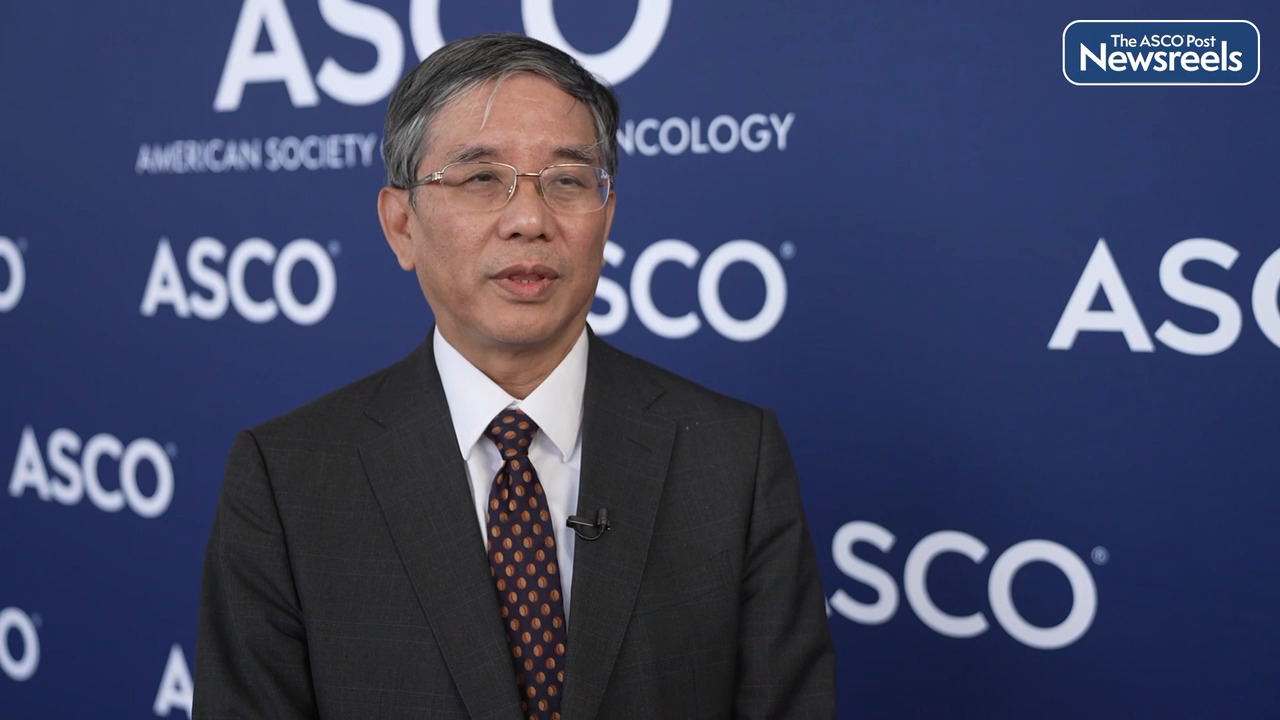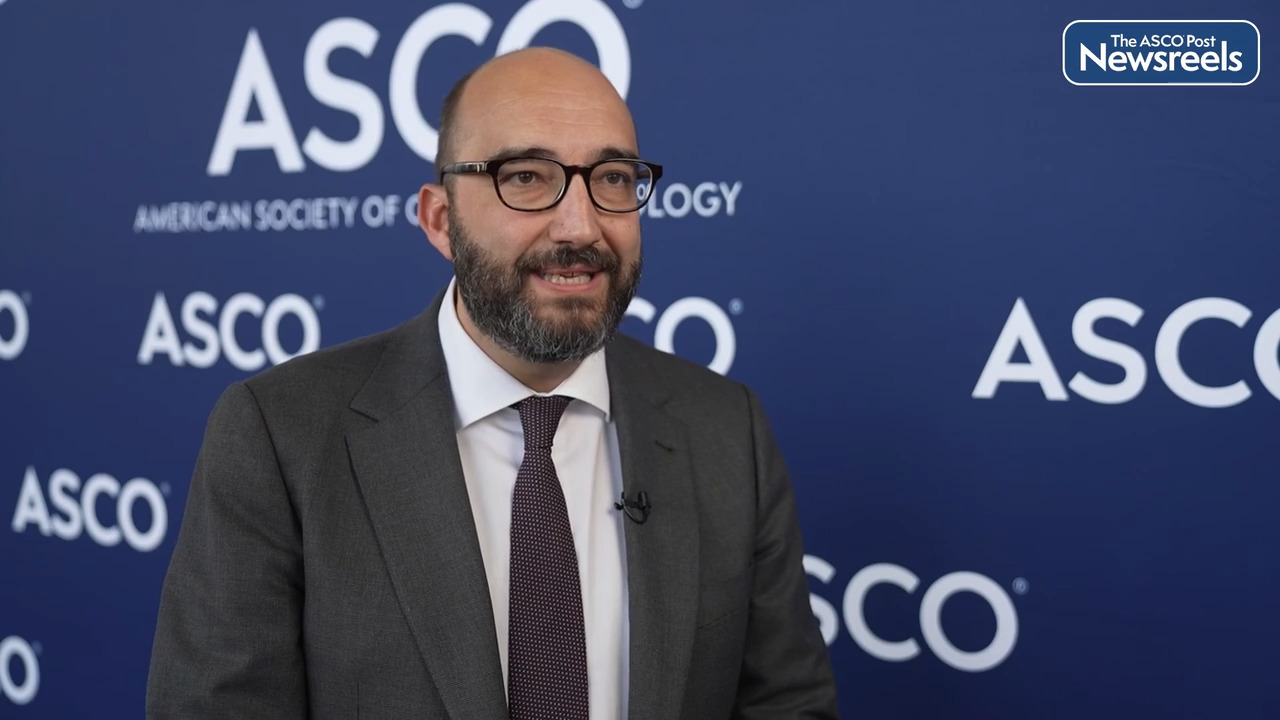Transcript
Disclaimer: This video transcript has not been proofread or edited and may contain errors.
Jonathan W. Riess, MD:
At this ASCO 2023 annual meeting, I'm speaking on EGFR-mutated non-small cell lung cancer: What's next? And I'll be discussing three important abstracts that will be presented at the oral session for metastatic non-small cell lung cancer. The first abstract is KEYNOTE 789, which is adding pembrolizumab immunotherapy to platinum pemetrexed based chemotherapy. It's a clinical trial that randomizes patients with advanced EGFR-mutated non-small cell lung cancer who've progressed on prior EGFR tyrosine kinase inhibitor to either chemotherapy or chemotherapy plus pembrolizumab. And this is an important study because patients with EGFR-mutated non-small cell lung cancer were excluded from many of the pivotal chemo-immunotherapy clinical trials in the past, because we think of these tumors as being less responsive to single agent immunotherapy. And in this study there was no clear progression-free survival or overall survival benefit with the addition of pembrolizumab to platinum pemetrexed based chemotherapy.
This study highlights the importance of better selecting patients with EGFR-mutated non-small cell lung cancer for that small population that might benefit from immunotherapy or immune checkpoint inhibitor combinations, as well as, other potential factors that may potentiate the immune response. Within this study, it looked like patients whose tumors had positive PD-L1 expression might do slightly better, but once again, no overall survival or progression-free survival benefit was shown. So it is not clear and it does not show that immunotherapy added to chemotherapy provides any benefit to these patients. There are further studies looking at the combination of immunotherapy with anti-angiogenesis agents in combination with chemotherapy, and there may be some potentiation of immune activity with that anti-angiogenesis immunotherapy ICI interaction. But we still have yet to see an overall survival benefit from studies already conducted, and we eagerly await the results of future studies.
For the second abstract I will be discussing, it's zorifertinib in EGFR-mutant non-small cell lung cancer. This trial, conducted in Asia, randomized patients to a highly CNS penetrant, EGFR TKI zorifertinib versus first-generation EGFR TKI erlotinib or gefitinib. And in this study for patients with treatment-naive EGFR-mutant non-small cell lung cancer with active untreated asymptomatic brain metastases, zorifertinib improved progression-free survival compared to erlotinib or gefitinib and also had an increased PFS in terms of intracranial progression. Now, osimertinib is also an EGFR tyrosine kinase inhibitor with high CNS penetration and has shown a progression-free survival and overall survival benefit compared to gefitinib or erlotinib. But this drug may not be available at all places in the world, although it's the standard of care in the United States. And so, it's unclear right now if this will change the standard of care of the future because of osimertinib being used in the first-line setting in the United States and Europe in many parts of the world.
The third abstract I'll be discussing is sunvozertinib and EGFR Exon 20 insertion non-small cell lung cancer. These are uncommon EGFR-mutations, yet important ones. They're the third most common EGFR activating mutation. About 10 to 12% of EGFR-mutated non-small cell lung cancer. And there's been a number of advances recently with the FDA approval of amivantamab and mobocertinib after progression on platinum-based chemotherapy. Sunvozertinib was studied in the WU-KONG6 study, which I will be discussing, and that showed, in patients who have had prior treatment for EGFR Exon 20 insertion non-small cell lung cancer, a response rate of 60.8%, which looks favorable in the context of other recently approved Exon 20 agents such as amivantamab and mobocertinib. Sunvozertinib has favorable activity with response rate of 60.8% in the WU-KONG6 trial. It also appears to have CNS activity, which is important and compares very favorably to current FDA approved agents amivantamab and mobocertinib. Some unanswered questions are the sequencing of Exon 20 agents, as well as, potential combinations strategies in the future, but this looks like to be an exciting drug that's being developed further.
